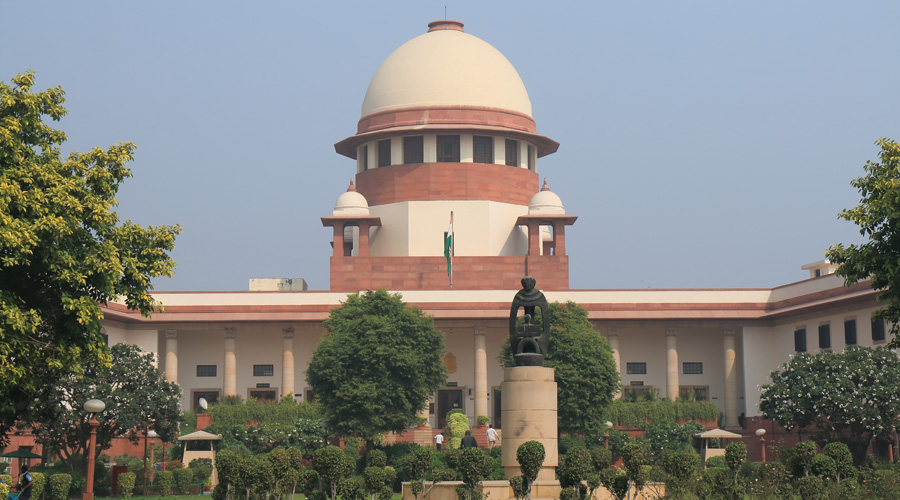The Supreme Court on Tuesday stayed the implementation of the three farm laws, restrained the Centre from tinkering with the minimum support price and allowing the sale of farmers’ land, and constituted a four-member committee to broker peace between the government and the protesting peasants.
The court-appointed committee has been asked to submit its report within two months of its formal constitution over the next 10 days.
The bench of Chief Justice S.A. Bobde and Justices A.S. Bopanna and V. Ramasubramanian said it does not intend to hinder the farmers’ protest at Delhi’s borders demanding the repeal of the three laws and a legally guaranteed MSP.
The lawyers appearing for different farm bodies — most of these outfits are not part of the agitation whose participants are against the court’s intervention — had suggested several alternative protest sites.
The apex court left the task of convincing the agitating farmers and their families to go back home to the various farmers’ organisations.
“…Having heard different perspectives, we deem it fit to pass the following interim order, with the hope and expectation that both parties will take this in the right spirit and attempt to arrive at a fair, equitable and just solution to the problems,” the court said.
The court stayed “until further orders” the “implementation” of the Farmers’ Produce Trade and Commerce (Promotion and Facilitation) Act, 2020; the Essential Commodities (Amendment) Act, 2020; and the Farmers’ (Empowerment and Protection) Agreement on Price Assurance and Farm Services Act, 2020, all of which had been steamrolled through Parliament by the government.
“In addition, the farmers’ land holdings shall be protected, i.e., no farmer shall be dispossessed or deprived of his title as a result of any action taken under the farm laws,” the court said.
Appointing the four-member committee, the court said the panel had been “constituted for the purpose of listening to the grievances of the farmers relating to the farm laws and the views of the government and to make recommendations”.
The committee has as members Bhupinder Singh Mann, chairman of the All India Kisan Coordination Committee; Dr Parmod Kumar Joshi, agricultural economist and director for South Asia, International Food Policy Research Institute; Ashok Gulati, agricultural economist and former chairman of the Commission for Agricultural Costs and Prices; and Anil Ghanwat, president of the Shetkari Sanghatana.
The court posted the matter for further hearing after eight weeks, by which time it expects the panel to undertake the exercise of a negotiated solution to the vexed issue.
However, the bench issued notice to the Delhi government on an application moved by the Centre to prevent the farmers from taking out a rally on January 26 to coincide with the Republic Day celebrations in the capital.
The Supreme Court said the committee would be provided a place and secretarial assistance at Delhi by the Centre, which will also bear all expenses for its sittings.
“The representatives of all the farmers’ bodies, whether they are holding a protest or not and whether they support or oppose the laws, shall participate in the deliberations of the committee and put forth their view points. The committee shall, upon hearing the government as well as the representatives of the farmers’ bodies and other stakeholders, submit a report before this court containing its recommendations. This shall be done within two months from the date of its first sitting. The first sitting shall be held within 10 days from today,” the court said.
“While we may not stifle a peaceful protest, we think that this extraordinary order of stay of implementation of the farm laws will be perceived as an achievement of the purpose of such protest at least for the present and will encourage the farmers’ bodies to convince their members to get back to their livelihood, both in order to protect their own lives and health and in order to protect the lives and properties of others,” the order added.











